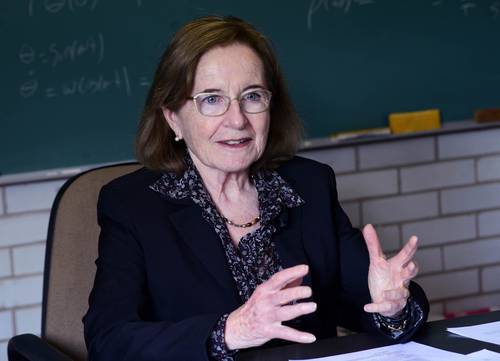Despite the importance of quantum mechanics, most physicists are not concerned or are not interested in thinking about the foundations of that area of knowledge, because they believe that it would unnecessarily distract them from their calculations, their experiments or the applications of the theory, they would stop publishing and they would be punished, said specialist Ana María Cetto Kramis.
in the cycle Mexican humanistic and scientific advances
organized by the National Council of Humanities, Sciences and Technologies (Conahcyt), the researcher offered the conference Quantum mechanics demystified
. He highlighted that this theory studies atomic and subatomic systems and their interactions with electromagnetic radiation and other forces, in addition to observing all forms of energy that are released in discrete units or packages called quanta.
He added that almost a century ago, in 1925, the German theoretical physicist Werner Karl Heisenberg published the matrix formulation of quantum mechanics, and in 1926 Erwin Rudolf Josef Alexander Schrödinger proposed the non-relativistic quantum atomic model.
He highlighted that the theory has a great impact if it is considered that it is the foundation of the phenomenology of the atom and its elementary particles; In addition, it has had an impact on areas such as information, cryptography and chemistry.
The power of quantum mechanics can be measured by its predictive capacity, as well as by applications in developments; However, it is an incomplete theory, because it describes the phenomena, but does not know their causes, and deprives us of understanding their essence.
said physics.
The expert in stochastic electrodynamics and biophysics of light considered that when dealing with objects and phenomena that are not visible or directly perceptible, It is not surprising that the theory is not complete in terms of its foundations.
.
He added that some mysteries that surround quantum mechanics and for which it is considered incomplete are aspects related to atomic stability, such as wave particle duality
nature and collapse
of PSI, nonlocality, quantum fluctuations, C variables to Q variables, the Pauli exclusion principle and entanglement.
Bohr’s Postulates
As an example, he presented the postulates of Niels Bohr (1885-1962), who, when talking about atomic stability, specified that electrons occupy stationary (quantized) orbits, do not radiate, and jump instantly from one orbit to another.
One wonders: why don’t they radiate, if they are accelerated charges and they are uniting? Well no, they are prohibited from radiating. Another, what happens for electrons to jump from one orbit to another? Those are the mysteries it contains
he indicated.
He pointed out that the shortcomings of this theory are a relevant issue, because it has metaphysical consequences, on the way of understanding the world or perceiving reality, but also because it has an impact on physics, “there are large gaps that are filled with postulates to this, tailored, and with interpretive elements to the author’s taste, foreign to physics and sometimes opposed to it.”
The scientist, who has dedicated part of the past 50 years to investigating how the theory can be completed, maintained that one of the lines of work they have followed is to characterize the stochastic process of quantum mechanics.
